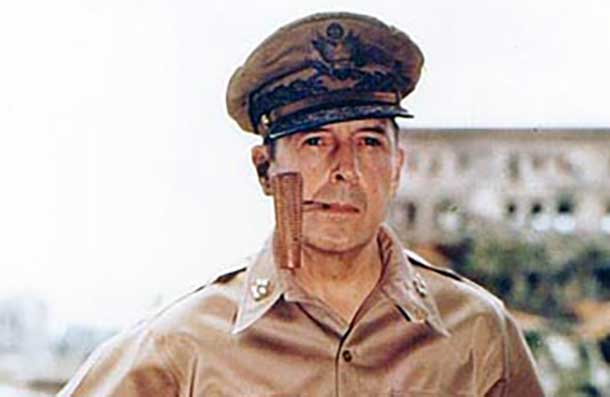
THUNDER BAY – HISTORY – January 2 in history has a long list of events that are remembered. During World War Two, German bombers severely damaged the Llandaff Cathedral in Cardiff, Wales, United Kingdom. Today there are several local Thunder Bay lawyers who studied in Cardiff and now practice law in the city.
The war was going badly for Allied Forces in 1942 in the Pacific. The City of Manila, the capital of the Philippines was captured by the Japanese on January 2nd.
Due to the Japanese occupation of the Philippines, American soldiers were ordered to withdraw from the city and all military installations were removed on December 24, 1941. General Douglas MacArthur declared Manila an open city to prevent further death and destruction; despite this, the Japanese warplanes continued to bomb the city. Manila was occupied by the Japanese forces on January 2, 1942.
- 366 – The Alemanni cross the frozen Rhine River in large numbers, invading the Roman Empire.
- 533 – Mercurius becomes Pope John II, the first pope to adopt a new name upon elevation to the papacy.
- 1492 – Reconquista: the Emirate of Granada, the last Moorish stronghold in Spain, surrenders.
- 1777 – American Revolutionary War: American forces under the command of George Washington repulsed a British attack at the Battle of the Assunpink Creeknear Trenton, New Jersey.
- 1788 – Georgia becomes the fourth state to ratify the United States Constitution.
- 1791 – Big Bottom massacre in the Ohio Country, marking the beginning of the Northwest Indian War.
- 1818 – The British Institution of Civil Engineers is founded.
- 1833 – Reassertion of British sovereignty over the Falkland Islands.
- 1860 – The discovery of the planet Vulcan is announced at a meeting of the French Academy of Sciences in Paris, France.
- 1865 – Uruguayan War: The Siege of Paysandú ends as Brazilian and Coloradans capture Paysandú, Uruguay.
- 1871 – Amadeus I becomes King of Spain.
- 1900 – American statesman and diplomat John Hay announces the Open Door Policy to promote trade with China.
- 1905 – Russo-Japanese War: The Russian garrison surrenders at Port Arthur, China.
- 1911 – A gun battle in the East End of London left two dead and sparked a political row over the involvement of then-Home Secretary Winston Churchill.
- 1920 – The second Palmer Raid takes place with another 6,000 suspected communists and anarchists arrested and held without trial. These raids take place in several U.S. cities.
- 1927 – Angered by the anti-clerical provisions of the Mexican Constitution of 1917, Catholic rebels in Mexico rebelled against the government.
- 1935 – Bruno Hauptmann goes on trial for the murder of Charles Lindbergh, Jr., infant son of aviator Charles Lindbergh.
- 1941 – World War II: German bombing severely damages the Llandaff Cathedral in Cardiff, Wales, United Kingdom.
- 1942 – The Federal Bureau of Investigation (FBI) convicts 33 members of a German spy ring headed by Fritz Joubert Duquesne in the largest espionage case in United States history—theDuquesne Spy Ring.
- 1942 – World War II: Manila, Philippines is captured by Japanese forces.
- 1945 – World War II: Nuremberg, Germany (in German, Nürnberg) is severely bombed by Allied forces.
- 1949 – Luis Muñoz Marín becomes the first democratically elected Governor of Puerto Rico.
- 1955 – Panamanian president José Antonio Remón Cantera is assassinated.
- 1959 – Luna 1, the first spacecraft to reach the vicinity of the Moon and to orbit the Sun, is launched by the Soviet Union.
- 1963 – Vietnam War: The Viet Cong wins its first major victory in the Battle of Ap Bac.
- 1967 – Ronald Reagan sworn in as Governor of California
- 1971 – The second Ibrox disaster kills 66 fans at a Rangers-Celtic association football (soccer) match.
- 1974 – United States President Richard Nixon signs a bill lowering the maximum U.S. speed limit to 55 MPH in order to conserve gasoline during an OPEC embargo.
- 1975 – A bomb blast at Samastipur, Bihar, India, fatally wounds Minister of Railways Lalit Narayan Mishra.
- 1975 – Bangladeshi Marxist leader Siraj Sikder is arrested and dies while in police custody.
- 1976 – The Gale of January 1976 begins, which results in coastal flooding around the southern North Sea coasts, resulting in at least 82 deaths and US$1.3 billion in damage.
- 1981 – One of the largest investigations by a British police force ends when serial killer Peter Sutcliffe, the “Yorkshire Ripper”, is arrested in Sheffield, South Yorkshire.
- 1992 – Leaders of armed opposition declare the President Zviad Gamsakhurdia deposed during a military coup in Georgia.
- 1993 – Sri Lankan Civil War: The Sri Lanka Navy kill 35-100 civilians on the Jaffna Lagoon.
- 1999 – A brutal snowstorm smashes into the Midwestern United States, causing 14 inches (359 mm) of snow in Milwaukee, Wisconsin, and 19 inches (487 mm) in Chicago, where temperatures plunge to -13 °F (-25 °C); 68 deaths are reported.
- 2004 – Stardust successfully flies past Comet Wild 2, collecting samples that are returned to Earth.
- 2006 – An explosion in a coal mine in Sago, West Virginia traps and kills 12 miners, while leaving one miner in critical condition.
Source: Wikipedia.




